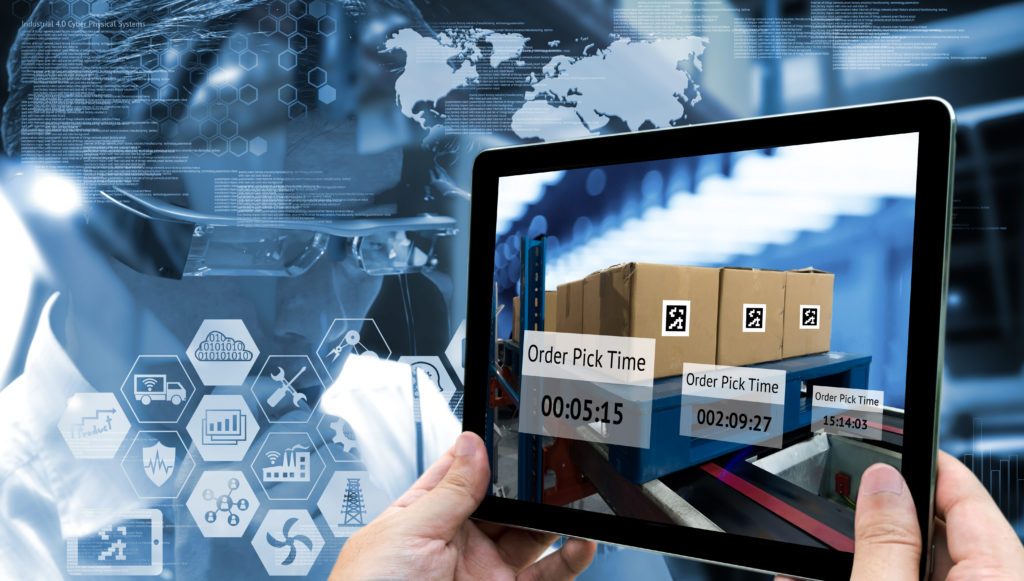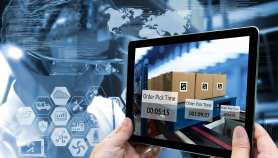
A conversation about digital supply chain in chemical, process and food ingredients industry between Roger Kerckhoffs (DSM), Dr. Wolfram Keller and Lorenzo Formiconi.
Everyone these days is talking about digitalization in the supply chain: how much of this hype is justified for the chemical, process, or food ingredients industries?
Roger: For some businesses digitalization has been a major disruptor. One could have expected this coming in an early stage for the music-industry or the publishing industry. But who could have predicted in the early years of this century that digitalization would shake the hotel-industry and that today AirBNB offers more accommodation than Hilton? So who dares to say the digitalization will not affect him or her even if he doesn’t know today what exactly the disruption will be? Everything that can be digitalized will be digitalized – many repeat – including supply chain. At the same time we need to consider that we at DSM are a company focused on health, nutrition, and materials, with a focus on product innovation and superior manufacturing, where for us “digital” is more a business enabler –although very important, rather than the core of business itself. I personally see digitalization in supply chain for our business as an evolution of what we are already doing now, rather than a revolution – as it may be for other businesses, like retail, or financial services. But don´t misunderstand me: major changes have happened through evolution instead of through revolution: the one is not necessary better than the other.
Wolfram: I agree with Roger that for manufacturing companies – thereunder many chemical companies – digitalization in supply chain may represent an evolution, at least for the immediate future. We need also to acknowledge, that the chemical and the process industries as a whole have been relatively timid in embracing the digital transformation: the number of companies that have a Chief Digital Officer (or comparable position) are still a few, and even less those that have an ongoing transformation program that spans across all (or at least most) of the company´s functions.
Lorenzo: The good news is that more and more chemical companies started piloting selected application of digital technologies to their sales, innovation,manufacturing and also supply chain processes and are so to speak collecting experiences. I would not be surprised if we would see the topic “digital in chemicals” trending higher in the next few months.
Where do you see the major contributions of the digitalization in the area of supply chain management for a company in the process industry?
Roger: I expect a major contribution in the area of forecasting & planning. The classical approaches based on ERP systems or Advanced Planners & Optimizers are showing their limits already since many years. Forecast accuracy – one of the main indicators for the quality of planning – is often below 50%. Even if companies have installed highly effort-intensive forecast reviews and S&OP processes, it is rare that the forecast accuracy in reaches levels in the order of 80-90%, like in retail. The lower the forecast accuracy, the higher the level of stock necessary to absorb demand fluctuations, the higher the working capital and the costs associated to it.
Another very important contribution will be in the area of transactions. In fact, today´s chemical supply chain is a huge sequence of transactions, mostly still relying upon significant manual interventions – from order intake (often over the phone, in local language, with input into SAP), through stock reservation, order confirmation, production scheduling, up to logistics planning & execution, delivery, proof of delivery, payment, customs etc. At the same time the level of transparency where an order is and where it is expected to be delivered is very low, compared to what we see everyday when we order something on Amazon. Some technologies are especially promising: Blockchains, that have the potential to create this transparency through cost-efficient recording of transaction data and open and unlimited access to them. Also the application of barcodes, RFID or chips in pallets or other packaging units will increase the transparency in the logistics chain. Our industry can learn a lot from other industries (eg retail or those who supply to retail) in the area of transparency of the goods flow.
Digitalization has fostered a new generation of “Predictive Analytics Tools” that go beyond historical sales and inventory data (typical of ERP/APOs) and are able to process less structured data like macroeconomic & sector data (also up and downstream), marketing studies, up to internet & social network info (eg, feedbacks on product quality, claims, etc) – with a much higher chance to increase accuracy of predictions.
Lorenzo: Digitalization has fostered a new generation of “Predictive Analytics Tools” that go beyond historical sales and inventory data (typical of ERP/APOs) and are able to process less structured data like macroeconomic & sector data (also up and downstream), marketing studies, up to internet & social network info (eg, feedbacks on product quality, claims, etc) – with a much higher chance to increase accuracy of predictions. BASF, among others, is deploying such a predictive analytics approach to better plan and adapt its plant runs as demand changes.
In the area of transactions, Artificial Intelligence, that promises to automate many manual activities through its already mature applications based on machine / deep-learning like voice recognition, real-time translation, image recognition, expert assistance, etc. Just think at the cost reduction potential of fully automating order intake, customs clearance, or reporting.
Wolfram: I would also mention autonomous driving and logistics automation among the digital technology advancements that can transform the chemical supply chain as we know it today. Here in particular I see both an evolution from existing approaches – as mentioned by Roger – and a revolution. In fact, autonomous driving exists since the late 80s and 90s within the four walls of factories, where Automated Guided Vehicles (AGV) transport goods from the warehouse to the manufacturing lines and the other way around. The real new thing here is that these technologies are becoming more and more “smart” through better algorithms and faster computing power (also through machine / deep learning). But the revolution is out side of the four walls of a factory, on public roads. Tesla and other car manufacturers are now testing since 3-4 years autonomous driving on public roads and several manufacturers are about to launch autonomous trucks as early as 2019. Given the high quote of bulk and packaged goods on road transport in the chemical industry, the roll-out of these technologies will have a significant impact on the appearance of the chemical supply chain.
How realistic is a full digital transformation in the supply chain management of a company in the chemical, process, or food-ingredients industries, and which are the main barriers?
Roger: I believe that – over time – everything that can be digitalized will be digitalized: the change is – in my view – inevitable. The question is when. I think that the process industries will remain behind other industries in terms of digital transformation also in the years to come. We have spotted the main barriers to change already above, implicitely. First, there isn´t much pressure in terms of profitability on the industry,yet. Second, the complexity of the business makes it difficult to digitalize quickly. Second, the level of fragmentation in the industry is high, and the level of investment in digitalization comparatively low. Third, in our industry we rather spend our money on product-innovation and production-facilities rather than on digitalization. Digitalization is not our core business. Probably we like to partner with others who can support us. Compare to the outsourcing of transportation which started in the 80’s. firstly to 1st party logistic service providers, than to 2nd and 3rd party LSP’s and today to 4th party LSP’s. I can see a development to “Digital Service Providers” evaluating in a similar way. Last but not least, the culture. You can´t transform a 100+ years manufacturing company into a start-up overnight.
Lorenzo: I think the cultural aspect is probably the most important. I expect that the increasing pressure from the companies downstream (consumer goods companies that are main customers of chemical companies) in terms of quality, speed, agility, will sooner rather than later hit the chemical companies upstream. It will be at that point in time that the companies that are more digital-minded will turn this mindset into competitive advantage. There may well be some new entrants that change some of the rules of the game and appropriate big market shares by offering better service at lower costs. This is why I passionately encourage my clients in the industry not to wait too long and address the cultural aspect decisively through a serious change management program. Key is here to confront a company´s existing team with the way of working that digitalization requires. This is in fact the really new aspect, and not the single technologies – that get regularly replaced by newer and better. As an example: traditional project management differs significantly from digital project management. The first is based on static activity plans, complex interdependencies / critical paths, long milestones, and aims at delivering a 100% spec-conform solution; the second is based on trial and error (“minimum viable products”), frequent milestones (“sprints” of one week or so) and adjustments, and a very pragmatic adherence to the principles of desirability, feasibility, and viability out of the so called “Design Thinking” school. You can imagine the effort it can take to teach the new way of working to an employee population that proudly exercised the old way for years and years.
About the interviewees
Roger Kerckhoffs is senior project manager at DSM and an expert in supply chain management
Dr. Wolfram Keller is partner at execon partners and an expert in supply chain management and digital transformation
Lorenzo Formiconi is managing partner at execon partners and an expert in operations management and digital transformation
Roger, Wolfram, and Lorenzo know each other from a joint supply chain management engagement carried out at DSM

